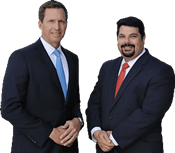I’m Emily Carter, a financial analyst and writer, and if there’s one thing I know about, it’s the importance of trust when it comes to financial advice. The misconception that financial advisors are always accountable for our financial success is as common as it is misleading. In reality, the financial world is filled with nuances that can either safeguard our investments or leave us at a loss.
What Does “Accountable” Mean for Financial Advisors?
Let’s clarify what “accountable” means. When a financial advisor is accountable, they’re legally obligated to their clients and might face consequences if their advice results in financial loss. However, the extent of this accountability is where things get complex.
Understanding Advisor Accountability
To get to the heart of an advisor’s accountability, we must distinguish between the two main standards in the industry:
- Fiduciary Standard: Advisors who follow this standard must prioritize your best interests over their own gains. If their advice causes you financial harm, they are more likely to be held accountable.
- Suitability Standard: Advisors under this rule only need to ensure recommendations fit your financial situation, even if they receive commissions from the products they endorse. Holding them accountable is more challenging.
While not every financial disappointment can be traced back to your advisor’s doorstep, they aren’t entirely off the hook either. A fact worth noting: Roughly 60% of wealthy individuals have at some point replaced an advisor over trust issues or subpar performance, according to a 2017 Spectrem Group survey. The implications of bad advice are real and costly!
 (AD) Lost money because of bad financial advice or outright fraud? You may get it back by filing a complaint. Haselkorn & Thibaut has 50+ years of experience and a 98% success rate. Don’t delay if you’ve suffered losses. (AD) Lost money because of bad financial advice or outright fraud? You may get it back by filing a complaint. Haselkorn & Thibaut has 50+ years of experience and a 98% success rate. Don’t delay if you’ve suffered losses. Call Haselkorn & Thibaut at 1-888-784-3315 for a free consultation, or visit InvestmentFraudLawyers.com to schedule. No Recovery, No Fee. |
Steering Clear of Advisor Accountability Issues
Here’s how we, as investors, can navigate these turbulent waters:
- Do Your Homework: Research your advisor’s background, qualifications, and any history of complaints. Being informed is your first line of defense.
- Be Wary of Conflicts: Understand the potential impacts of commissions on your advisor’s recommendations.
- Keep Records: Ensure all advice, plans, and expectations are in writing. Documentation is key.
I love the quote, “The four most expensive words in the English language are, ‘This time it’s different’” by Sir John Templeton. This rings particularly true in the context of financial advice. There is no guarantee that an advisor’s counsel will be infallible, no matter how different your situation might appear. And while financial advisors can be held accountable, it’s up to us to be vigilant and proactive in our financial dealings.
Being educated about your advisor’s credentials and professional standards doesn’t have to be daunting. Each advisor has a FINRA CRM number, which you can check here to get a clearer view of their history and qualifications. Embrace knowledge, ask the hard questions, and always prioritize your financial well-being.
Remember, navigating financial advice doesn’t just involve finding a great advisor—it’s also about staying engaged and informed. So keep a watchful eye, be an active participant, and champion your own economic future.




